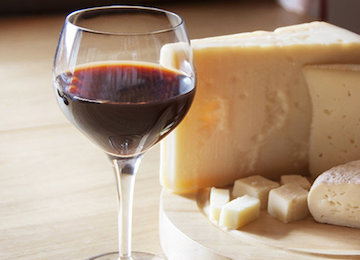The End of Wine and Health Research Has Been Reached
 I consume a remarkable amount of wine-related media and I’ve gotten very good at “skimming and glancing,” a form of quickly reviewing a story for significance and nuggets of important or actionable information. What’s rare, at least in the realm of wine journalism and writing, is scanning an article and immediately thinking, I’m being trolled by the writer or publication.
I consume a remarkable amount of wine-related media and I’ve gotten very good at “skimming and glancing,” a form of quickly reviewing a story for significance and nuggets of important or actionable information. What’s rare, at least in the realm of wine journalism and writing, is scanning an article and immediately thinking, I’m being trolled by the writer or publication.
But in the midst of a deadly pandemic, with strict shutdowns all around, having no access to a decent meal paced by professional servers, observing the grim reality of so many people out-of-work and desperate, and while staring the shortest day of the year in the face, what else besides a bit of trolling can you assume when you see this headline:
“WINE AND CHEESE MAY HELP YOUR BRAIN”
I mean….why not just be done with it and publish a story headlined like this: “Medium rare rack of lamb and creamed spinach served with red wine after a round of golf found to lengthen life”
But there it was, right there in DECANTER Magazine:
“The study’s authors, led by a team at Iowa State University, examined data from more than 1,500 UK adults to explore links between diet and age-related cognitive decline. Cheese was by far the most protective food, said the researchers, after analysing dietary survey data and cognitive test results on participants, gathered over a 10-year period. Red wine was highlighted for its links to improved brain function, found the research.”
Wine drinkers have been teased and teased over the years with a variety of studies that purport to show that moderate consumption of wine is medically protective in a variety of ways. Inevitably those studies are followed by new studies that tell the drinkers that wine will give you cancer and put you in the grave early. Then another study comes along and informs that, no, on balance you’ll live longer if you drink wine. This declaration is always followed by a foot-stomping insistence that alcohol will kill you and we need more warnings telling people so.
My view is that at some point the responsible wine lover needs to choose to stop reading the dueling studies and stick with the last one they read. So, I’m stopping and I’m sticking with “WINE AND CHEESE MAY HELP YOUR BRAIN”.
By the way, If you read to the bottom of the DECANTER story you get a quote from Auriel Willette, one of the authors of the study, that is remarkably unscientific yet also incredibly self-aware:
‘I was pleasantly surprised that our results suggest that responsibly eating cheese and drinking red wine daily are not just good for helping us cope with our current Covid-19 pandemic, but perhaps also dealing with an increasingly complex world that never seems to slow down.”
Here we have the equivalent of a giddy cackle from a white-coated researcher who is more than likely prone to making cautious, science-based claims concerning the need for “more research,” but who instead appears to appreciate the practice of self-medicating with wine and cheese.
By the way, if you are wondering exactly what it was that had me convinced we were being trolled with this article, I direct your attention to this little addition from the DECANTER story: “Weekly consumption of lamb was also related to ‘long-term cognitive prowess.”
There it is. I give you the endpoint of research into the ways consumption of food and wine might increase our health. There really is no reason to carry on any further.

How about “Reading Fermentation regularly improves the quality of life…”
Keep it coming and Happy Holidays!!
You’re a good man, Michael Barnes! Cheers!
The next “study” or lawsuit that I see that glyphosate in wine leads to cancer will convince to uncork a bottle of (non-organic, non-biodynamic, non-natural) wine and enjoy with a slice of cheddar! I will ask those that disagree with me: WHERE is the EPIDEMIC?…now that we know what a REAL pandemic looks like!